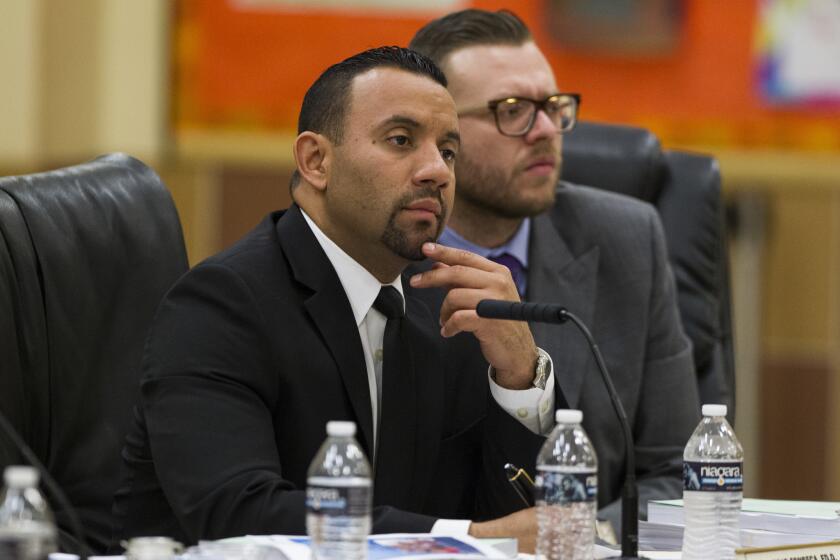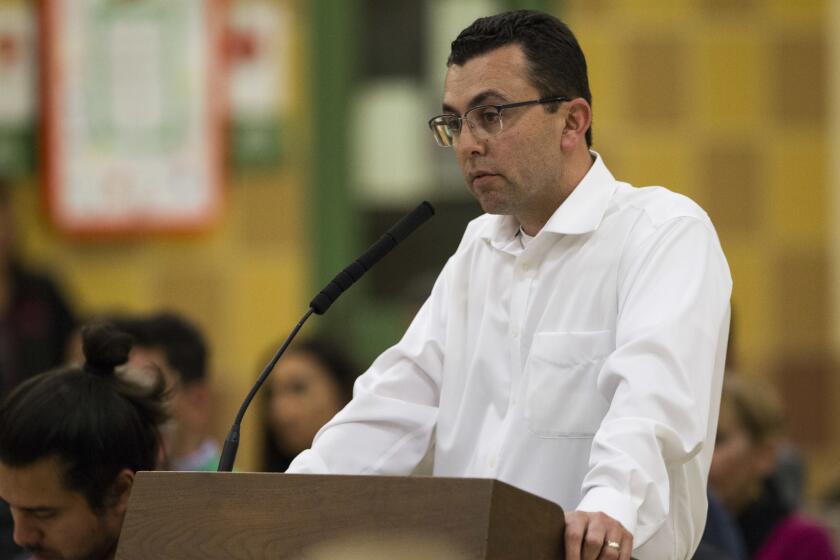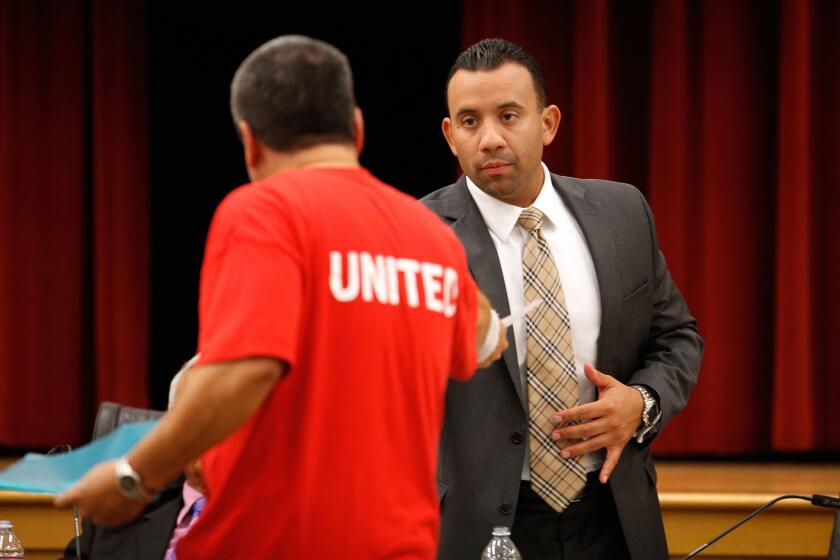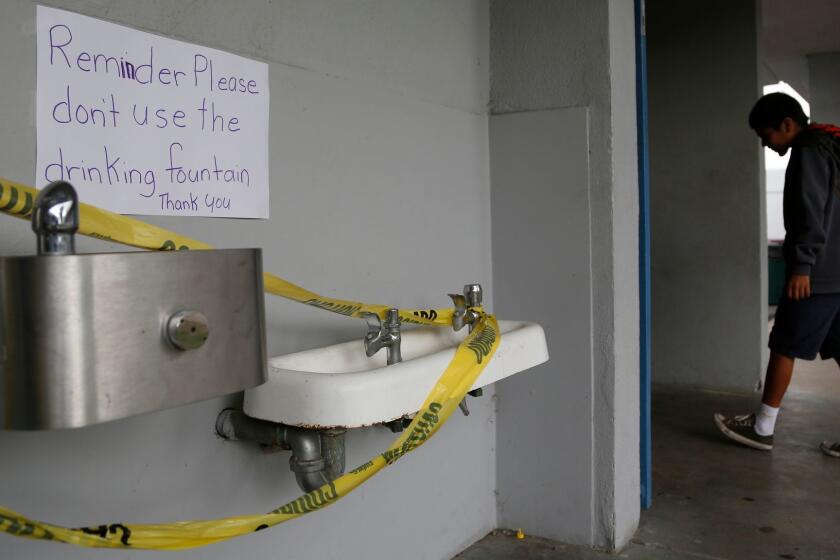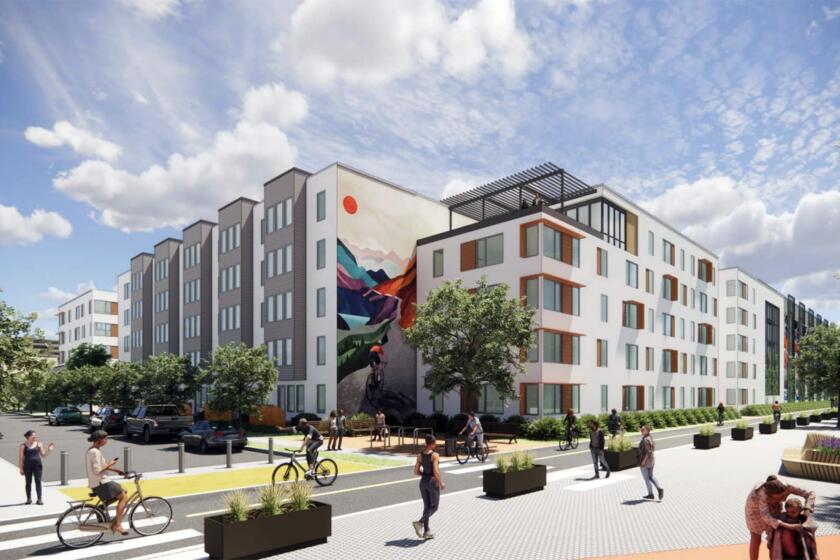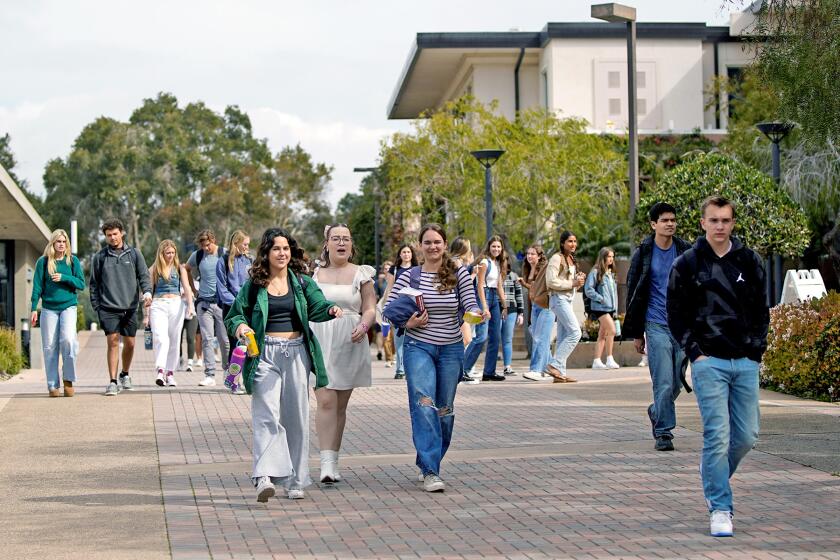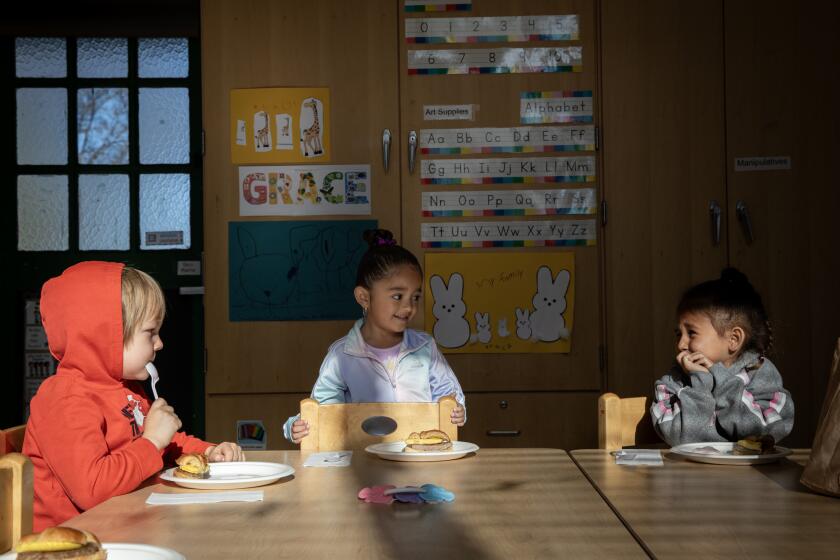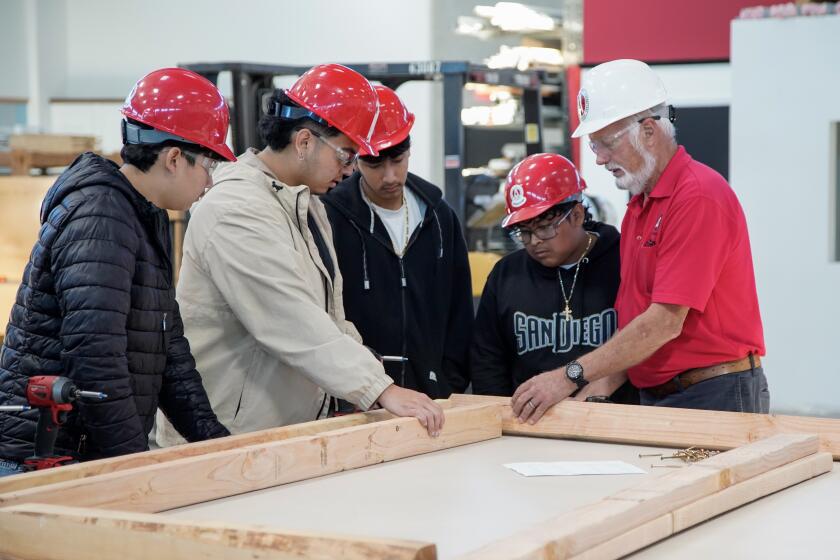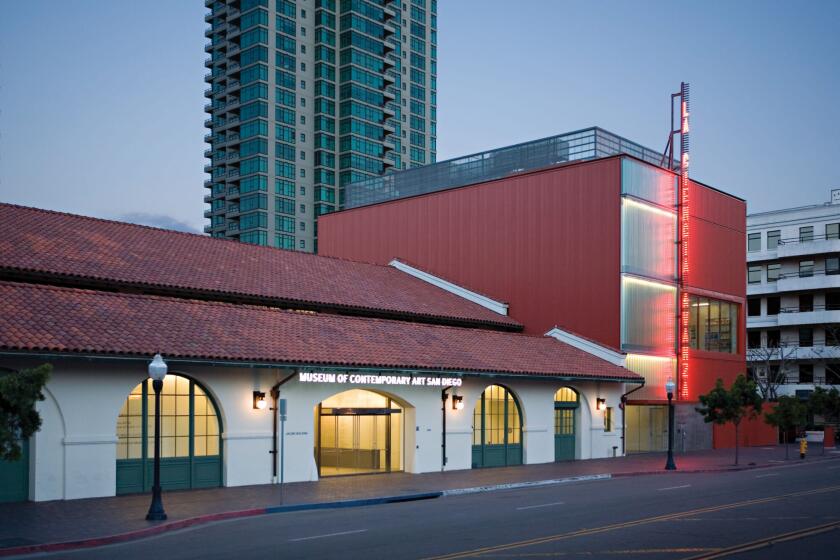School named after influential Japanese-American
The land where a new elementary school will stand next year bearing the name of Saburo Muraoka is as rough as the Chula Vista fields he was forced to abandon so long ago.
When it opens, the $47.5 million Saburo Muraoka Elementary in Otay Ranch will be the first public school in the county named for a Japanese-American, said the county Office of Education. Chula Vista Elementary School District trustees voted last Wednesday to adopt the name for the campus, which had been known as School Site No. 46. They chose from a list of 41 suggestions.
Born in Yokohama, Japan, Muraoka came to the United States in 1915. He was a successful farmer and businessman who had called Chula Vista home for nearly three decades when Pearl Harbor was attacked and the U.S. government decided that anyone who looked like the enemy wasn’t to be trusted.
In an act steeped in racism and fueled by hysteria, Muraoka and his family lost their homes, farms and businesses — their American dream — when they were sent to detention camps along with more than 100,000 people of Japanese ancestry in the country. The Muraokas spent most of World War II in Crystal City, Texas.
Muraoka’s son, Roy, 86, remembers the uncertainty that spanned the years they spent interned in Crystal City, Texas.
“I was learning Japanese because we all thought we were going back to Japan,” he said.
After the war, Muraoka returned to Chula Vista — not only to again grow celery and cucumbers that would be shipped nationwide, but to plant the seeds of change.
Muraoka’s grandson sought to have him recognized to keep the Japanese-American community’s history alive. The $47.5 million school on Santa Alexia Road in Otay Ranch will have room for 800 students in kindergarten through sixth grade.
Board President Eduardo Reyes said Muraoka’s perseverance and resilience made him a local hero students could look up to.
While working to rebuild his life and livelihood, Muraoka also worked constantly to promote peace and share Japanese culture throughout the region. Buying land after the war took time, but Muraoka was quick in building bridges to bring people together.
He embraced the international People-to-People Program started in 1956 by the President Dwight D. Eisenhower and helped to establish the San Diego-Yokohama Sister City Program to strengthen ties between Japan and America. He had a hand in the Japanese Friendship Garden in Balboa Park, though he did not live to see it open in 1991, and the Friendship Bell at Shelter Island.
“He said that if the Japanese had known the Americans and the Americans had known the Japanese, there would have been no war,” Roy Muraoka said.
Ken Muraoka, 48, spearheaded the effort to have the new school named for his grandfather. “He knew that people meeting face to face would break down the barriers of fear and mistrust.”
Saburo Muraoka holds a significant place in the city’s history. His agricultural innovations — paper “hot caps” designed to help plants grow — doubled crop production and contributed to putting Chula Vista on the map as America’s celery capital.
Later in life, Muraoka sold the farmlands he had been able to purchase after the war and became a real estate developer. He built the Palace Garden Mobile Home Park on Second Avenue when he was in his 60s. It was a venture that Ken Muraoka said put a tremendous strain on the family’s finances while the park got off the ground and filled with tenants.
“He could have retired,” he said. “But he worried about his family, and he worried about the future generations. He took the risk so I could have more opportunities.”
Saburo Muraoka died in 1983. He was 83. That his contributions — and the hardships and discrimination the Japanese-American community had to endure — might be forgotten was something the Muraoka family didn’t want to see.
“We want to leave our footprints here in Chula Vista,” Roy Muraoka said.
“Saburo’s story is an example of what all Japanese-Americans went through,” Muraoka’s grandson Ken said.
In light of the current political debate swirling around immigrants that at times seems hostile, Ken Muraoka called the decision significant. His father said it made him feel wonderful.
“He did so much, and he lost so much. But he was able to come back,” Roy Muraoka said. “I think he would have liked this.”
christine.huard@sduniontribune.com
Get Essential San Diego, weekday mornings
Get top headlines from the Union-Tribune in your inbox weekday mornings, including top news, local, sports, business, entertainment and opinion.
You may occasionally receive promotional content from the San Diego Union-Tribune.

